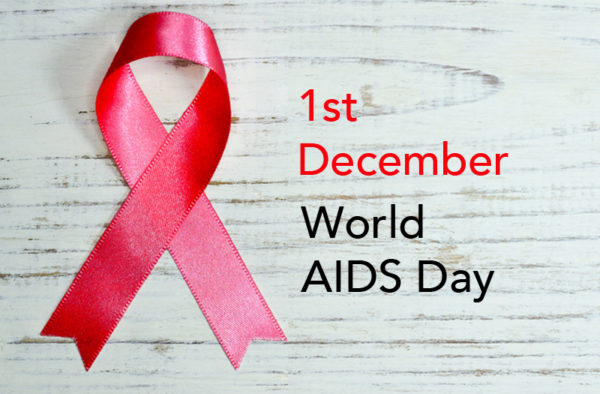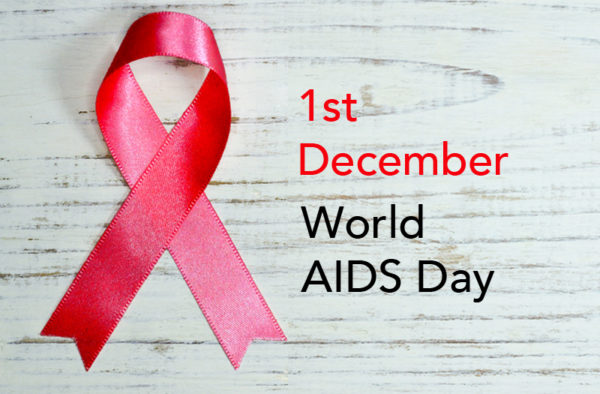
Police officer fired for being HIV+ suing for discrimination at highest Czech court
- Prague Pride
Friday 1 December is World AIDS Day, an occasion to raise awareness of the dangers of the illness and at the same time to express support for the people living with HIV and honor the victims of the epidemics. Around the world this day has been marked since 1988. The Czech Republic is still searching for its own approach on HIV and HIV-positive people. This confusion and the repressive attitudes of some officials in high places are best illustrated by the case of Max Blanck, a police officer who 2 weeks ago received another negative verdict in his discrimination complaint against his former employer.

Positive test and quick firing
Max’s life was dealt a fundamental blow in 2010. First, after his regular HIV test, he found out he was positive. And only a few months after that, he lost his job and his home, because he was forced to leave the company dorm. To this day Max has no idea how the information about his illness reached his supervisor. Surely not through official channels. The company doctor sent Max on sick leave and in December 2010 a medical commission found him unfit for the job. At the beginning of 2011 his contract was terminated.
Up to that point Max Blanck worked in a unit that guarded high-ranking public servants. He was responsible for the security of the buildings and incoming vehicles. Max insisted from the very beginning that his condition did not prevent him from carrying out his duties. In March 2011 his HIV viral load was 36 copies/ml, which is considered undetectable, so low that its carrier can be basically considered uninfected. From October 2010 to this day Max’s viral load has been close to zero. The only clinical manifestations that his doctor identified were the swollen lymph nodes.
Outdated work regulations
The court’s problematic stance
The stance of the court that has been dealing with the case since 2013 is also problematic. The first court in the beginning declined its competence and encouraged Max to address his allegations of discrimination to the Ministry of the Interior. It took almost 2 years to change the court’s initial stance. After that the procedures dragged on for another year because of an expert evaluation, or opinion, which another court that took over the case then deemed unnecessary.
On one hand, the courts confirmed that to terminate a work contract because the employee is HIV-positive would constitute discrimination based on physical disability. On the other hand, though, they reached the conclusion that because of his illness, Max would have been unable to fulfill his duties as a police officer. It should be remembered that the only manifestation of Max’s illness at that point were his enlarged lymph nodes. The courts were therefore saying that by merely being HIV-positive an employee can be declared medically unfit for the job.
Max will not accept this opinion. He’s insisting that his present-day health state should be taken into account. This question is not just about Max. It can have an impact on the lives of other members of the so-called security structures – firefighters, customs workers, prison guards, members of the General Inspection of the Security Corps, or the Foreign Intelligence Service. “I have already received messages from several HIV-positive colleagues in those structures. Their situation is not easy. Although the results of their health tests are very good, the regulations have not changed for the better, so they are threatened by the same scenario as myself”, says Max. This is why he is considering now addressing the Supreme Court of the Czech Republic and he is ready, if necessary, to take his case to the Constitutional Court, the European Court for Human Rights and the Court of Justice of the EU.
I believe that we can change the outdated rules
Since he left the police Max went through several jobs, and in a few instances he had to quit because of the unsubstantiated fear of his co-workers that they will get infected with HIV. Almost 2 years ago he moved out of Prague and found tranquility in a border area near Plzen. He works for a funeral service and lectures on epidemiology at the university in Plzen. “I realized that my new profession, which I find satisfactory, is not so different from that of a policeman, in certain ways. I feel good psychologically, physically and health-wise. And my lab tests have been good long-term”, says Max. To this day, he is one of the few HIV-positive Czechs who have gone public and showed not just their faces, but also their names.
He still believes that the outdated labor regulations of the Czech police can change. “We are in the middle of Europe, the environment we live in is not too different from Germany or Austria. That’s where I believe we should be looking for inspiration and experiences which we could use to improve the internal work regulations so that they are beneficial not only for the management of the security structures, but also for their employee”, says Max, with hope.



